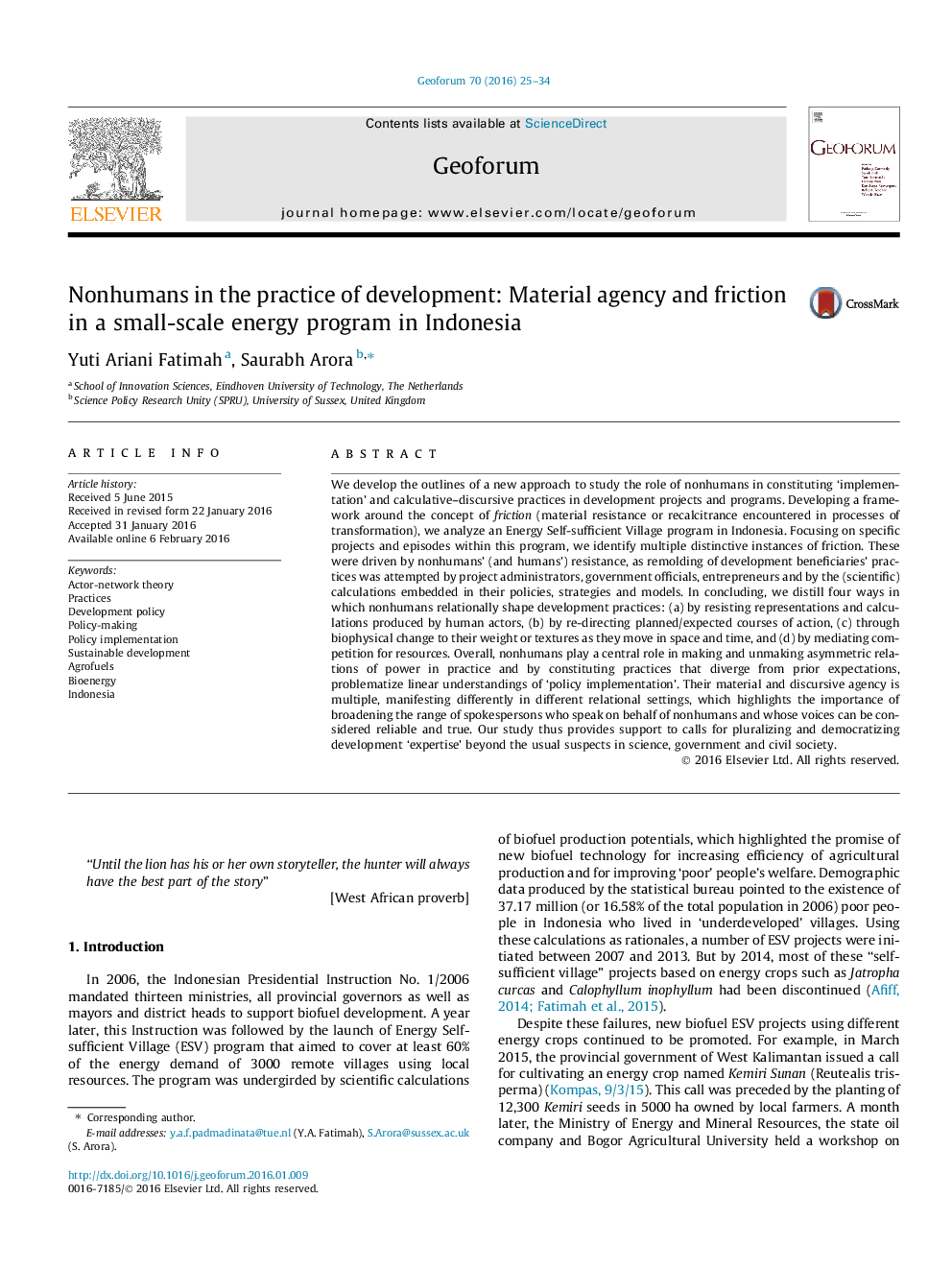| Article ID | Journal | Published Year | Pages | File Type |
|---|---|---|---|---|
| 5073388 | Geoforum | 2016 | 10 Pages |
We develop the outlines of a new approach to study the role of nonhumans in constituting 'implementation' and calculative-discursive practices in development projects and programs. Developing a framework around the concept of friction (material resistance or recalcitrance encountered in processes of transformation), we analyze an Energy Self-sufficient Village program in Indonesia. Focusing on specific projects and episodes within this program, we identify multiple distinctive instances of friction. These were driven by nonhumans' (and humans') resistance, as remolding of development beneficiaries' practices was attempted by project administrators, government officials, entrepreneurs and by the (scientific) calculations embedded in their policies, strategies and models. In concluding, we distill four ways in which nonhumans relationally shape development practices: (a) by resisting representations and calculations produced by human actors, (b) by re-directing planned/expected courses of action, (c) through biophysical change to their weight or textures as they move in space and time, and (d) by mediating competition for resources. Overall, nonhumans play a central role in making and unmaking asymmetric relations of power in practice and by constituting practices that diverge from prior expectations, problematize linear understandings of 'policy implementation'. Their material and discursive agency is multiple, manifesting differently in different relational settings, which highlights the importance of broadening the range of spokespersons who speak on behalf of nonhumans and whose voices can be considered reliable and true. Our study thus provides support to calls for pluralizing and democratizing development 'expertise' beyond the usual suspects in science, government and civil society.
